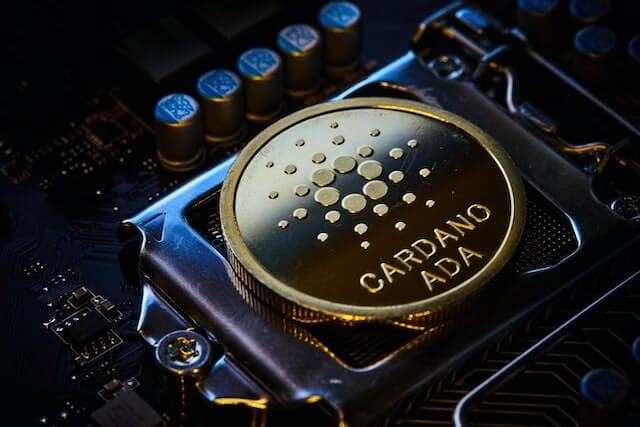Native tokens on the Cardano blockchain allow you to transact with multi-assets on its blockchain. These assets include Cardano's native currency, ADA, and all user-defined or custom tokens on its blockchain.
Native tokens reduce manual errors and eliminate the need to create smart contracts for handling custom tokens. They work with an existing accounting infrastructure or ledger model and can transact with assets, including user-defined custom tokens and ADA.
Keep reading to learn more about Cardano's native tokens and how they compare to ADA and Ethereum's ECR20.
Cardano has Multi-Asset (MA) Support
The Cardano blockchain has multi-asset (MA) support, which allows for the creation of native tokens. This means it can manage the transfer and ownership of various asset types on its ledger (via native tokens).
The idea behind Multi-Asset is to have one accounting model that can work with multiple types of assets. This contrasts with Ethereum, where each ERC20 token has its own ledger and smart contracts. Cardano's MA support is native, and Ethereum's is not– it uses a layer-2 solution built using smart contracts.
Assets Versus Tokens
Cryptocurrency assets and tokens are not the same. In the context of native tokens, an asset is something that has value and can be exchanged. A token is a digital representation of an asset.
Cardano's native tokens are digital representations of assets that exist on its ledger. These assets could be anything from fiat currency to energy credits. The key difference between Cardano's native tokens and Ethereum's ERC20 is that Cardano's are built into the protocol, while Ethereum's are not.
Cardano Native Tokens vs. ADA
Cardano's native tokens allow for the management and transfer of assets on its blockchain. ADA is the name of Cardano's cryptocurrency, and it is also a native token on the Cardano blockchain.
ADA can be used to represent any asset on the Cardano blockchain. However, it is primarily used as a unit of account and a means of exchange. While all native tokens on the Cardano blockchain can represent assets, ADA is the only one that can be used to transact with those assets.
Cardano's native tokens are more flexible than ADA. They can be used to represent any asset, including custom tokens. ADA is more limited in that it can only be used to represent and transact with assets on the Cardano blockchain.
Cardano Native Tokens Versus ECR20 Tokens
Ethereum's ERC20 tokens are not built into the protocol and rely on smart contracts for their functionality. This gives them some advantages and disadvantages compared to Cardano's native tokens.
The main advantage of ERC20 tokens is that they are more flexible than Cardano's native tokens. They can be used to represent any asset, not just assets on the Ethereum blockchain.
The main disadvantage of ERC20 tokens is that they are less secure than Cardano's native tokens. This is because they rely on smart contracts, which are
.
Cardano's native tokens are more secure than ERC20 tokens because they are built into the protocol. This makes them less susceptible to hacking. However, they are less flexible than ERC20 tokens because they can only be used to represent assets on the Cardano blockchain.
Final Thoughts
Cardano's native tokens offer several advantages over ADA and Ethereum's ERC20 tokens. They are more secure and less susceptible to hacking. They can also be used to represent any asset, not just assets on the Cardano blockchain.
If you're looking for a flexible and secure way to represent assets on a blockchain,
are a good option. However, if you're looking for a way to represent assets on any blockchain,
are a better option.
About Netcoins
Established in 2014 in Vancouver, British Columbia, Netcoins is a registered Restricted Dealer with the provincial securities commissions and a registered Money Services Business (MSB) with FINTRAC. The platform operates under BIGG Digital Assets Inc., a publicly traded company listed on the TSX Venture Exchange (TSXV: BIGG), and complies with applicable public company regulatory requirements.
The information provided in the blog posts on this platform is for educational purposes only. It is not intended to be financial advice or a recommendation to buy, sell, or hold any cryptocurrency. Always do your own research and consult with a professional financial advisor before making any investment decisions. Cryptocurrency investments carry a high degree of risk, including the risk of total loss. The blog posts on this platform are not investment advice and do not guarantee any returns. Any action you take based on the information on our platform is strictly at your own risk. The content of our blog posts reflects the authors’ opinions based on their personal experiences and research. However, the rapidly changing and volatile nature of the cryptocurrency market means that the information and opinions presented may quickly become outdated or irrelevant. Always verify the current state of the market before making any decisions.





.jpg)
.png)




